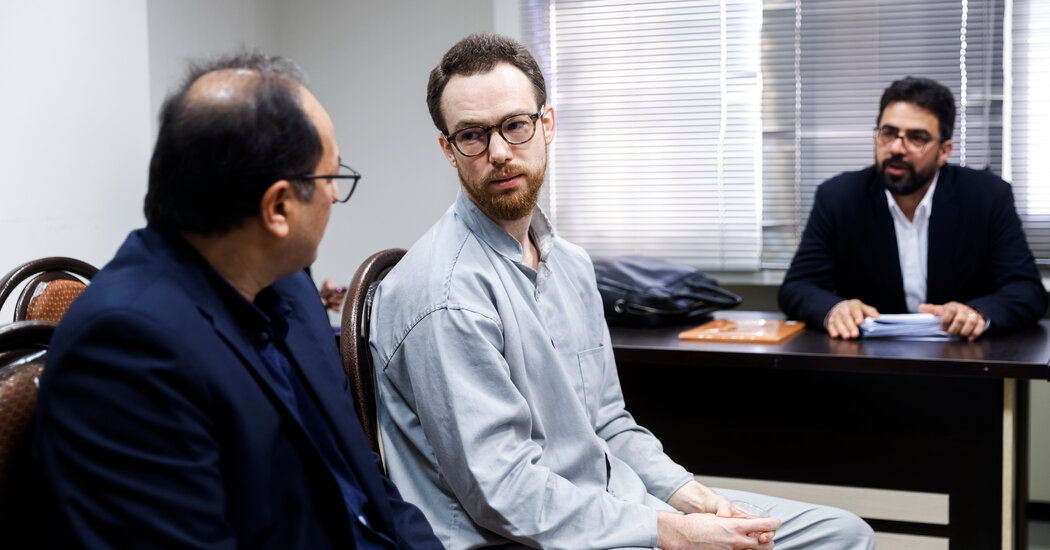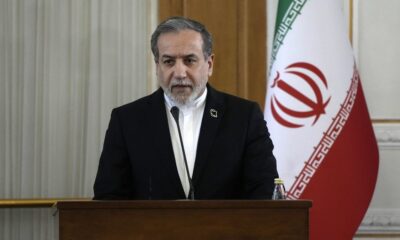Breaking News
Sweden and Iran Exchange Prisoners in a Breakthrough Swap

A prisoner exchange between Iran and Sweden took place on Saturday, bringing relief to families but also raising concerns. Sweden released Johan Floderus, a European Union diplomat, and Saeed Azizi, a dual national, who were both arrested in Iran. Iran, in return, released Hamid Nouri, an Iranian judiciary official who had been sentenced to life in a Swedish court for war crimes.
The exchange was coordinated with the help of Oman, and the prisoners were taken there before traveling to their respective home countries. Upon landing in Tehran, Nouri made a statement expressing his joy at being back in Iran. This exchange was significant as it marked the first time an Iranian official was convicted abroad for crimes committed in Iran.
The release of Nouri was met with mixed reactions, with some hailing it as a landmark case of trans-border justice and others criticizing it as rewarding Iran for unjust arrests of foreign nationals. Families of other prisoners still held in Iran expressed outrage at being left behind in the exchange.
While some welcomed the exchange, others, like Ahmadreza Djalali’s wife, expressed shock and devastation at their loved ones being left behind. The complexities of such swaps were underscored by Richard Ratcliffe, whose wife had also been imprisoned in Iran.
The prisoner swap highlighted the bittersweet nature of hostage diplomacy, where joy for some is accompanied by pain for others. This event also shed light on the plight of thousands of Iranians unjustly detained by the government.
For Iran, the return of Nouri was seen as a significant achievement. Nouri, a former judicial official involved in the execution of thousands in 1988, was lured to Sweden in 2019 and subsequently sentenced to life in prison for war crimes.
The exchange has sparked debate and raised questions about the implications of such diplomatic maneuvers on justice and human rights. The situation remains complex, with families and officials grappling with the aftermath of the exchange.
As the dust settles on this prisoner swap, the impact and implications of the decision continue to reverberate. The intricate web of international relations, justice, and human rights is once again brought into focus, highlighting the challenges and moral dilemmas faced in such situations.
The exchange serves as a reminder of the complexities of diplomacy and the delicate balance between justice, sovereignty, and international relations. As the world watches, the aftermath of this exchange will continue to unfold, shaping the future of diplomatic engagements and the pursuit of justice on the global stage.
-

 Destination8 months ago
Destination8 months agoSingapore Airlines CEO set to join board of Air India, BA News, BA
-

 Breaking News10 months ago
Breaking News10 months agoCroatia to reintroduce compulsory military draft as regional tensions soar
-

 Gadgets4 months ago
Gadgets4 months agoSupernatural Season 16 Revival News, Cast, Plot and Release Date
-

 Tech News12 months ago
Tech News12 months agoBangladeshi police agents accused of selling citizens’ personal information on Telegram
-

 Productivity11 months ago
Productivity11 months agoHow Your Contact Center Can Become A Customer Engagement Center
-

 Gadgets4 weeks ago
Gadgets4 weeks agoFallout Season 2 Potential Release Date, Cast, Plot and News
-

 Breaking News10 months ago
Breaking News10 months agoBangladesh crisis: Refaat Ahmed sworn in as Bangladesh’s new chief justice
-

 Toys12 months ago
Toys12 months ago15 of the Best Trike & Tricycles Mums Recommend























